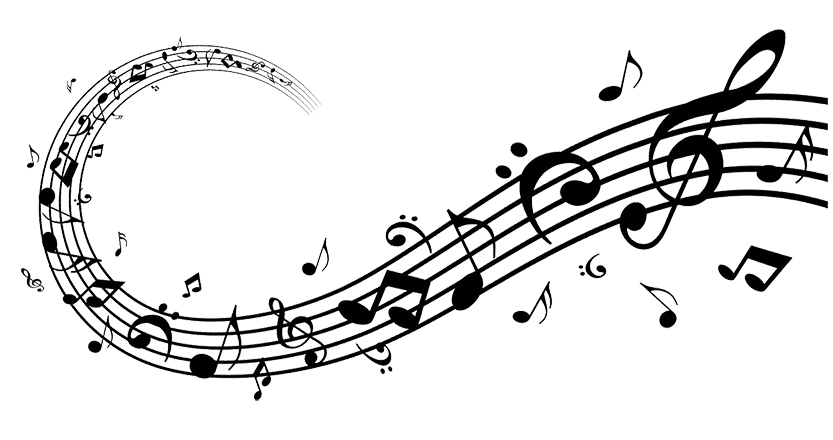
When is the last time a piece of music moved you?? Join our musical journey as Father Phil offers some modest suggestions for a musical Holy Week at home. Time to scour your musical library or go to YouTube. (We’ve included links to several of our favorite renditions, below!)
1. Franz Joseph Haydn’s work entitled, “The Seven Last Words of Our Savior on the Cross,” composed in 1783 for Good Friday service. Background music for reading “The Passion”?
2. George Frederic Handel composed “Messiah” and is one of the most famous English choral compositions. The words are from Revelation 19. His friend Charles Jennens wrote the text. Every year since 1875, the Royal Choral Society has performed Handel’s “Messiah” on Easter at the Royal Albert Hall in London. Sadly, I suspect, they won’t be performing this year.
3. “Halt was du hast.” (“Hold what you have”). Revelation 3:11. Georg Philipp Telemann was inspired by this Biblical passage when he composed this. “Hold what you have” refers to John’s admonition to persevere in faith during tough times. Pandemic!
4. The hymn “Holy, Holy, Holy” was composed by Reginald Heber, a British poet who served as a country parson and then as bishop of Calcutta, India, until his sudden death at age forty-two. The words were inspired by Revelation 4:8 and describes the power of God. The hymn has become a part of popular culture. It has been included in movies such as “Titanic” (1953); “The Fastest Gun Alive” (1956). Sung in many church services throughout the world, the song has been recorded by contemporary artists such as Keith Green (1982), Marcos Witt (1994), Amy Grant (2002 and 2015), Sufjan Steven (2016), Ronnie Melsap (2009), and Jimmy Needham (2012). Worth listening to these artists, but some of them, just once!
5. The beautiful psalm 23 with the comforting words, “The Lord is my Shepherd, I shall not want,” has found its way into modern culture, including movies and music. Psalm 23 has been featured in rap (Kanye West), Heavy metal (Megadeth), and rock (Pink Floyd). The psalm offers hope during dark times (like now!) and has been used in movies such as “Rooster Cogburn” (1975), “A River Runs Through It” (1992), “Titanic” (1997), and “The Magnificent Seven” (2016).
6. Perhaps the most loved of all screen musical, is the story of Maria, a nun-turned-nanny (!) who melts the heart of a cold and distant Captain von Trapp, the widowed father of a bunch of children who are talented singers. The film is set in 1938 Austria, as the Nazis are beginning their rise to power. As the movie builds to its dramatic conclusion, with the Nazis pursuing the von Trapp family, Maria leads the family back to her convent. There the Mother Abbess urges them to flee for safety over the Alps by quoting Psalm 121:1, “I raise my eyes toward the mountains, from whence shall come my help.” (to be continued)
~~
Cantantes de la Palabra!
Ofrezco algunas sugerencias modestas para una Semana Santa musical en casa. Es hora de recorrer su biblioteca musical o ir al tubo en U.
1. El trabajo de Franz Joseph Haydn titulado “Las siete últimas palabras de nuestro salvador en la cruz”, compuesto en 1783 para el servicio del Viernes Santo. ¿Música de fondo para leer “La Pasión”?
2. George Frederic Handel compuso “Mesías” y es una de las composiciones corales inglesas más famosas. Las palabras son de Apocalipsis 19. Su amigo Charles Jennens escribió el texto. Todos los años desde 1875, la Royal Choral Society ha interpretado el “Mesías” de Handel en Semana Santa en el Royal Albert Hall de Londres. Lamentablemente, sospecho, no se presentarán este año.
3. “El alto era du hast”. (“Sostenga lo que tiene”). Apocalipsis 3:11. Georg Philipp Teleman se inspiró en este pasaje bíblico cuando compuso esto. “Guarda lo que tienes” se refiere a la advertencia de John de perseverar en la fe durante los tiempos difíciles. ¡Pandemia!
4. El himno “Santo, Santo, Santo” fue compuesto por Reginald Heber, un poeta británico que sirvió como pastor del país y luego como obispo de Calcuta, India, hasta su repentina muerte a los cuarenta y dos años. Las palabras fueron inspiradas por Apocalipsis 4: 8 y describe el poder de Dios. El himno se ha convertido en parte de la cultura popular. Se ha incluido en películas como “Titanic” (1953); “El arma más rápido vivo” (1956). Cantada en muchos servicios religiosos en todo el mundo, la canción ha sido grabada por artistas contemporáneos como Keith Green (1982), Marcos Witt (1994), Amy Grant (2002 y 2015), Sufjan Steven (2016), Ronnie Melsap (2009) y Jimmy Needham (2012). Vale la pena escuchar a estos artistas, pero algunos de ellos, ¡solo una vez!
5. El hermoso salmo 23 con las palabras reconfortantes: “El Señor es mi pastor, no querré”, ha encontrado su camino en la cultura moderna, incluidas las películas y la música. El Salmo 23 ha aparecido en rap (Kanye West), Heavy metal (Megadeth) y rock (Pink Floyd). El salmo ofrece esperanza durante los tiempos oscuros (¡como ahora!) Y se ha utilizado en películas como “Rooster Cogburn” (1975), “A River Runs Through It” (1992), “Titanic” (1997) y “The Magnificent”. Siete ”(2016).
6. Salmo 121. “El sonido de la música”. Quizás el más amado de todos los musicales de pantalla es la historia de María, una monja convertida en niñera (!) Que derrite el corazón de un frío y distante Capitán von Trapp, el padre viudo de un grupo de niños que son cantantes talentosos. La película está ambientada en 1938 en Austria, cuando los nazis comienzan a ascender al poder. A medida que la película llega a su conclusión dramática, con los nazis persiguiendo a la familia von Trapp, Maria lleva a la familia de regreso a su convento. Allí, la madre abadesa los insta a huir por seguridad sobre los Alpes citando el Salmo 121: 1: “Alzo los ojos hacia las montañas, de donde vendrá mi ayuda”. (continuará)
